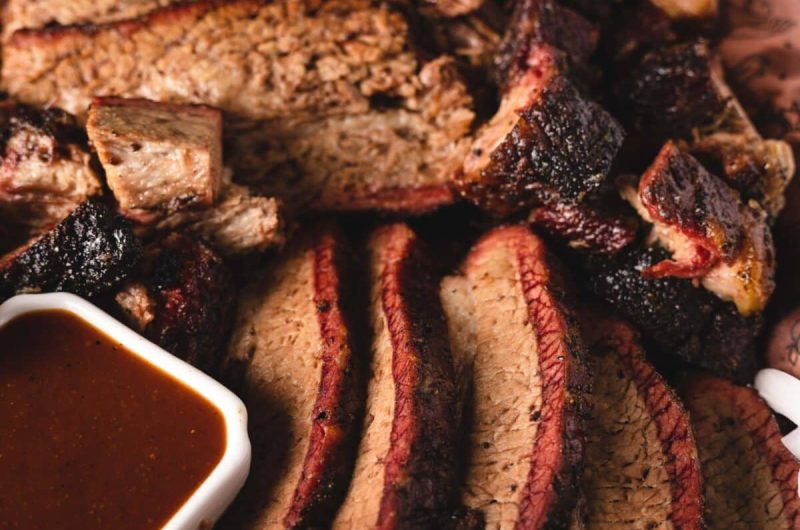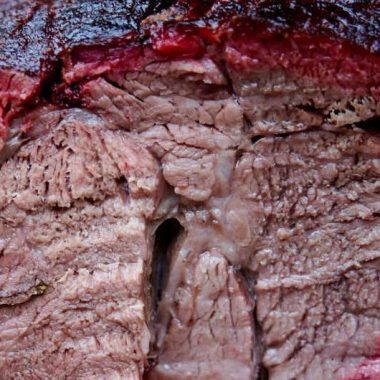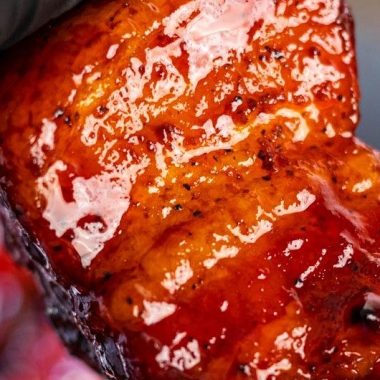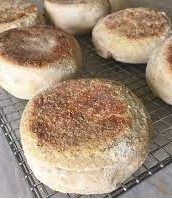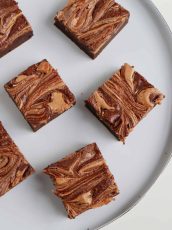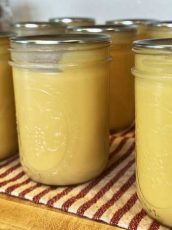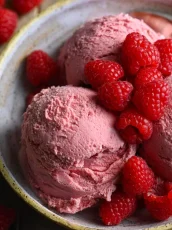If you’ve ever marveled at those smoky, bark-crusted brisket slices from legendary Texas BBQ joints, you’re in the right place. This authentic Texas-style smoked beef brisket recipe brings that same slow-smoked magic to your backyard. It’s a meat lover’s dream: juicy, tender, and layered with bold flavor from just a few simple ingredients. You don’t need to be a pitmaster—just follow this easy step-by-step method to cook like one.
This guide walks you through selecting, trimming, seasoning, and smoking a whole packer brisket to perfection using hardwood smoke, low-and-slow temperatures, and a classic salt-and-pepper rub. By the end, you’ll have a mouthwatering brisket with a blackened bark, succulent pink smoke ring, and that signature melt-in-your-mouth texture.
🔥 Why This Texas Smoked Brisket Recipe Works
- Traditional Texas flavor: Pure and simple seasoning lets the beef shine.
- Slow-smoking method: Breaks down connective tissue for unbeatable tenderness.
- Backyard-friendly: Works perfectly on pellet grills, offset smokers, or even kamado-style BBQs.
- Great for a crowd: Perfect centerpiece for family gatherings, summer BBQs, or weekend cookouts.
Let’s fire up the smoker and turn a big cut of beef into something legendary.
🐄 What Cut is Best for Smoking Brisket?
The ultimate cut for this method is a whole packer brisket, which includes both the point and the flat. This allows you to control your cook and serve different textures: the point is rich and fatty, while the flat is leaner and slices beautifully.
Look for a brisket weighing between 12–14 lbs for best results. Choose USDA Prime if you can—higher marbling means juicier, more flavorful meat.
🧂 Classic Texas Brisket Rub (Simple and Powerful)
In true Central Texas BBQ tradition, this brisket uses a three-ingredient rub that enhances the meat’s natural flavors without masking them.
Brisket Dry Rub:
- 2 tbsp coarse Kosher salt
- 2 tbsp coarse black pepper
- 2 tbsp garlic powder (optional, but adds depth)
💡 Tip: Feel free to mix this ahead and store it in a spice jar for your next cook. You don’t need sugar or paprika—Texas brisket is all about the beef and the smoke.
🔪 Prepping and Trimming Your Brisket
Trimming is crucial for even cooking and beautiful bark. Keep your brisket cold for easier trimming—it firms up the fat and makes slicing cleaner.
How to Trim Like a Pro:
- Flip the brisket fat-side down. Trim off the silver skin and hard fat from the flat.
- Shape the point by trimming off any loose pieces or excessive fat.
- Taper the fat seam where the flat meets the point, removing the bulky crescent-shaped fat.
- Flip it over and trim the fat cap down to about ¼ inch.
Proper trimming creates a smooth, aerodynamic shape that helps smoke and heat flow evenly around the brisket.
💨 Setting Up Your Smoker
Best Temperature for Smoking Brisket:
- Target Smoking Temp: 225°F (107°C)
- Ideal Wood: Oak (traditional in Texas), post oak, or hickory. Avoid mesquite unless you like intense smoke.
Use a pellet smoker, offset smoker, or ceramic kamado—whatever smoker you have will work as long as it maintains steady, indirect heat.
🍖 Smoking the Brisket – The Low & Slow Method
Phase 1: Build Bark and Smoke Flavor
- Place your brisket in the smoker with the point facing the heat source.
- Close the lid and maintain 225°F.
- Smoke until the internal temp reaches 165°F, usually around 8 hours.
During this phase, a rich mahogany bark forms while the smoke penetrates deeply into the meat.
📦 Wrapping the Brisket for Tenderness
Once you hit 165°F internally and the bark looks dark and firm:
- Wrap it tightly in uncoated butcher paper (or foil if you don’t have paper).
- The wrap locks in moisture and helps push the brisket through the “stall” (a plateau where internal temp slows down).
Return to the smoker with the seam side down, increase the temperature to 225°F, and continue cooking.
🕛 When is Brisket Done? Ideal Internal Temperature
Brisket is finished when it reaches 202°F in the thickest part. Use a probe thermometer and test for feel: the probe should slide in like butter with no resistance.
This final stage takes 5–8 more hours depending on your brisket’s size and your smoker.
🧊 Resting and Slicing Your Brisket
Once your brisket hits 202°F:
- Remove it from the smoker, still wrapped.
- Let it rest for 1 full hour (minimum) in a cooler or warm oven.
- Unwrap and slice against the grain using a long, sharp slicing knife.
The rest time allows juices to redistribute, making each bite moist and tender.
🍽️ How to Serve Texas Smoked Brisket
- Sliced Brisket Plates: Serve with BBQ sauce, pickles, onions, and white bread.
- Chopped Brisket Sandwiches: Add slaw and a toasted bun.
- Brisket Tacos: Top with jalapeños, cilantro, and creamy chipotle sauce.
- Leftover Brisket Hash: Great for breakfast the next day!
You can also freeze leftovers in vacuum-sealed bags for up to 3 months.
🔁 Common Pitmaster Questions (FAQs)
Can I smoke a brisket the day before?
Yes! Reheat it wrapped at 250°F in the oven until it reaches 140°F internally. Rest again before slicing.
Why use butcher paper instead of foil?
Butcher paper is breathable and allows steam to escape, keeping the bark firm. Foil traps moisture and can make the bark soggy.
Can I cook brisket at 275°F?
Yes, but the higher heat will cook faster—watch it closely and wrap once you hit 165°F. You might sacrifice some smoke ring and tenderness.
Do I need a water pan?
Optional. It helps regulate smoker humidity and can stabilize temperature in drier climates or with offset smokers.
🔑 Final Tips for Perfect Texas Brisket
- Always slice against the grain.
- Use an internal probe thermometer—don’t guess.
- Let the meat rest before slicing—don’t skip this step.
- Keep the seasoning simple—salt and pepper is all you need.
- Maintain steady temperature for consistent results.
